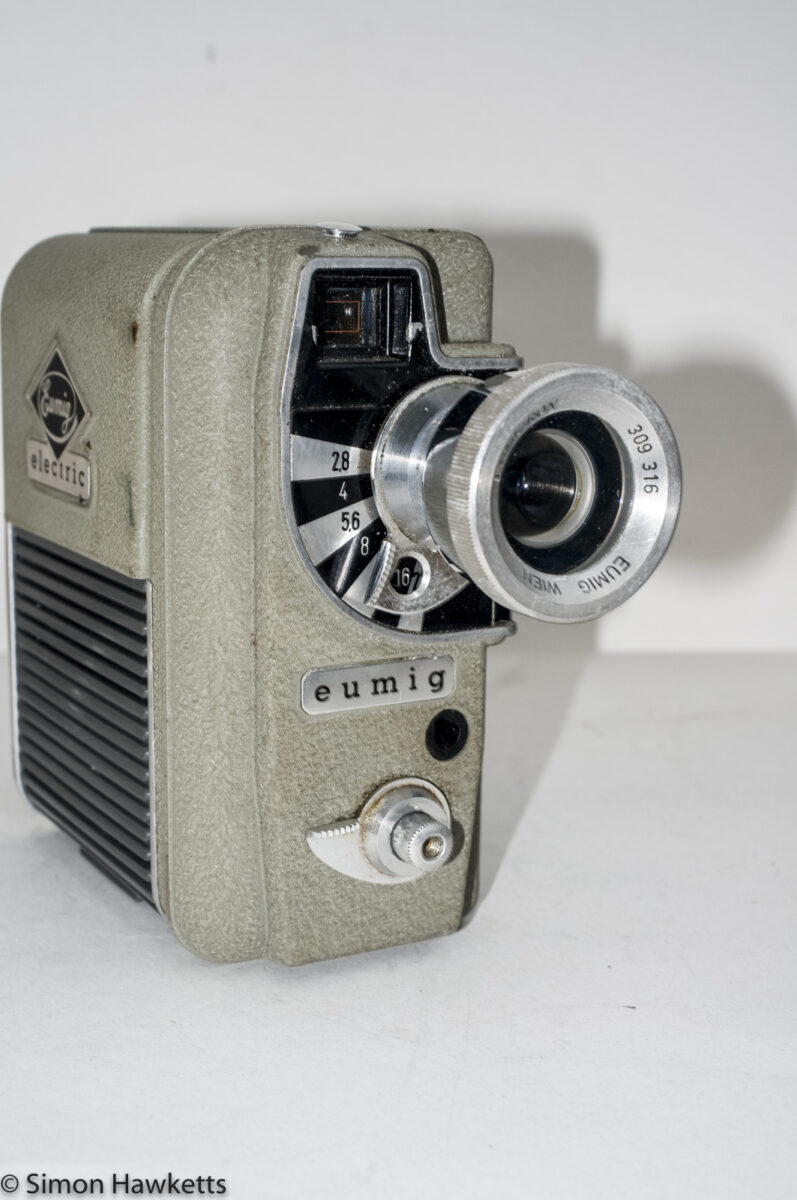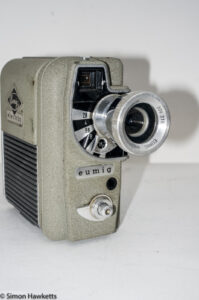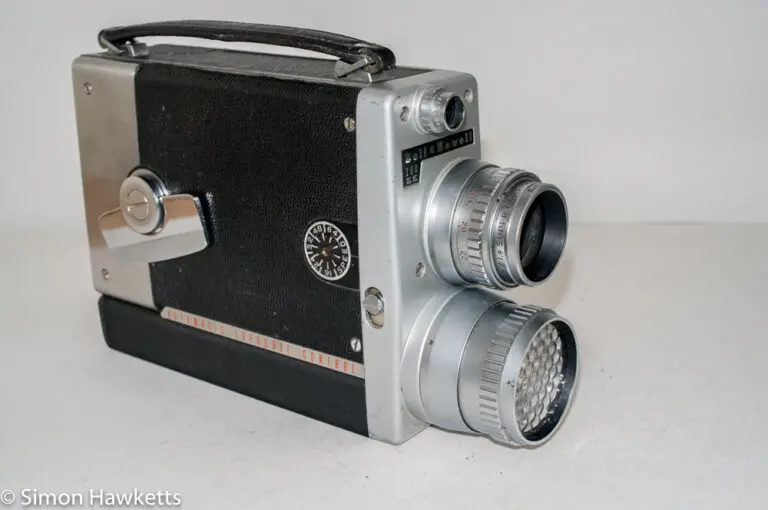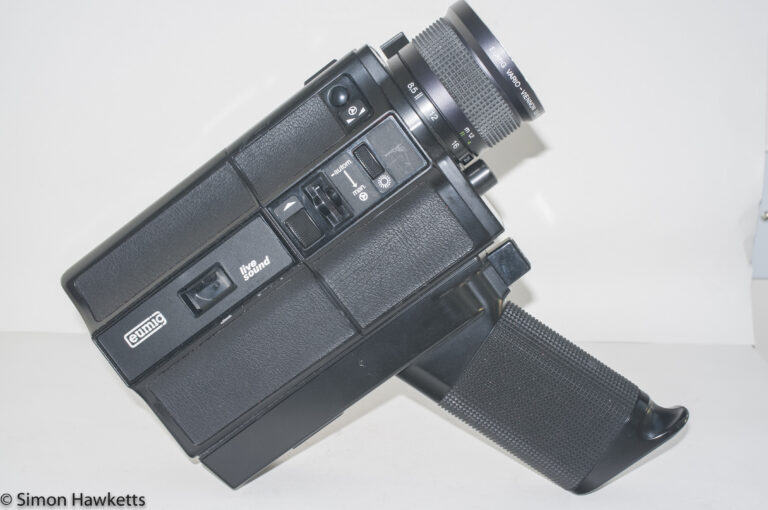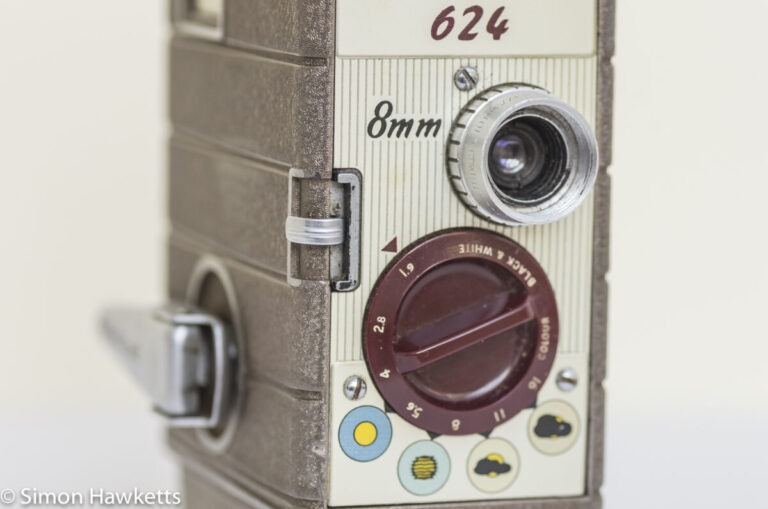Eumig Electric 8 cine camera
This is a descriptive post on the Eumig Electric 8 cine camera, which was produced by Eumig in Austria in the late 1950s. It is an electrically operated, 8 mm home cine camera and is a step above the mechanical, clockwork models used by many home cine enthusiasts at the time, and therefore had a slightly higher price than simpler models.
My Eumig Electric 8 cine camera
I picked this camera up from eBay as part of a bundle of items for a few pounds.
One of the main reasons I put a bid on it was because I could see from the seller’s pictures on eBay, that there was a film still in it and I thought it would be interesting to see it I could develop it. When the camera arrived, it turned out that the film is a Kodachrome, which is impossible to develop as a colour transparency now, but I could possibly get some black and white negatives from it which I can scan on my Telecine machine when I get it complete.
Along with the camera in its leather case, was a plastic carry case which also had in it various documents including exposure information for different types of cine film, the camera handbook, a wired long cable release, some filters and a screw on filter holder, a couple of add-on lenses and the original purchase receipt.
This last item shows that the cost of the camera, when originally purchased in May 1957, was £37 7s 10d. After a little research, I found the average weekly wage in 1957 was about £10, so this cine camera represented quite an investment for the original purchaser, a Mr Snaith from Darlington. On top of this, cine film was quite expensive so obviously, Mr Snaith would have been someone who was doing quite well in life.
Interestingly, attached to the side of the case was the remains of a travel ticket which showed that the camera was taken on trips abroad – which was probably the main reason many people had cine cameras in the 1950s and 1960s – to record family events and holidays.
Pictures of the Eumig Electric 8 Cine Camera
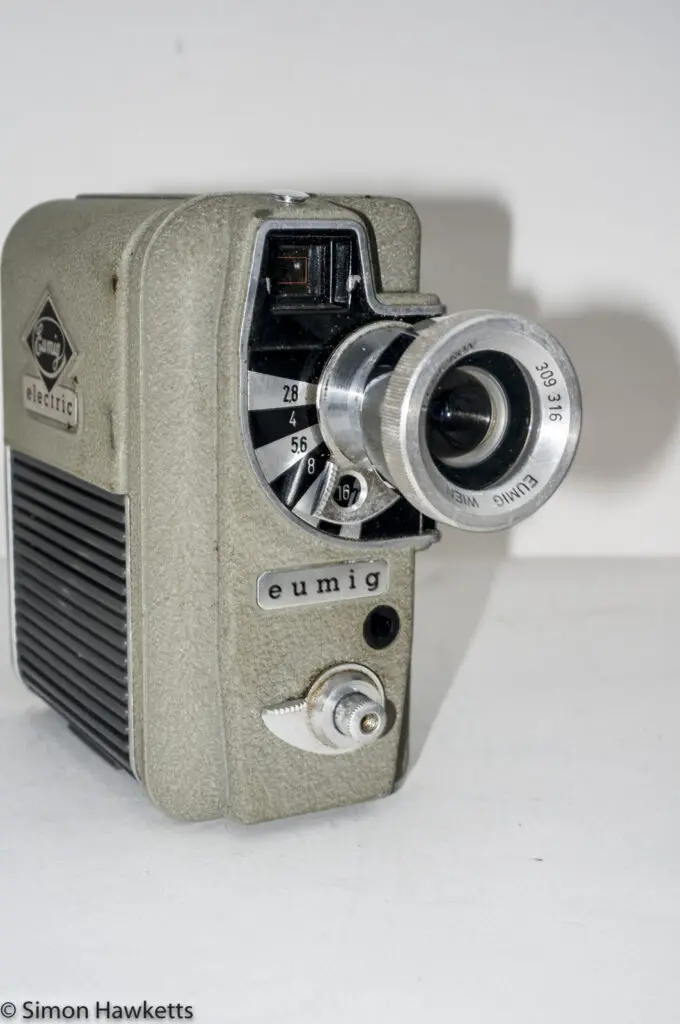
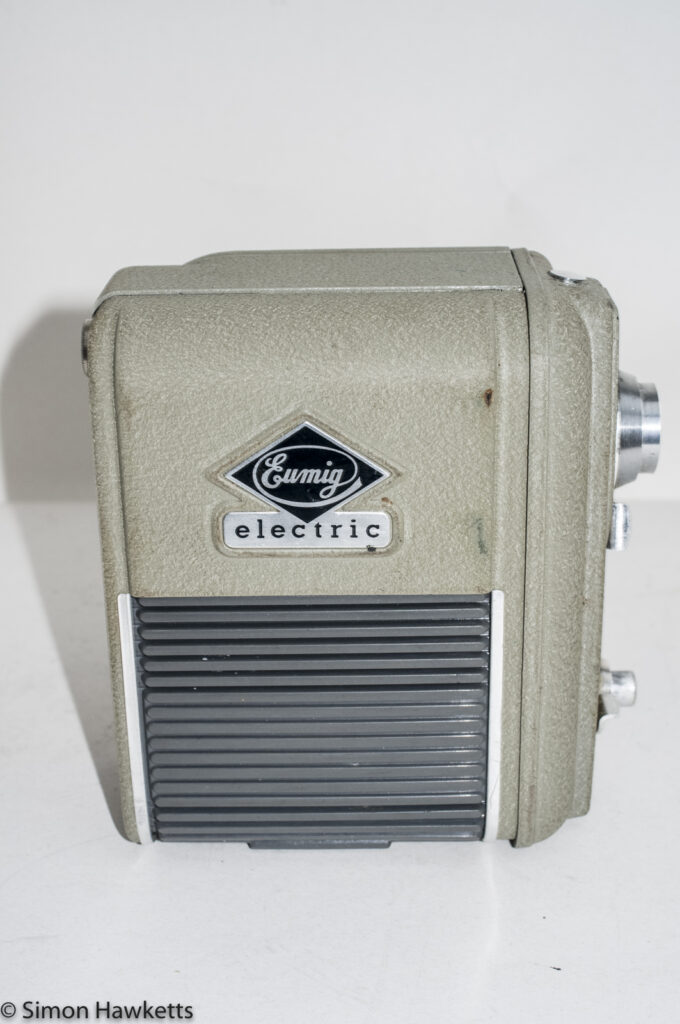
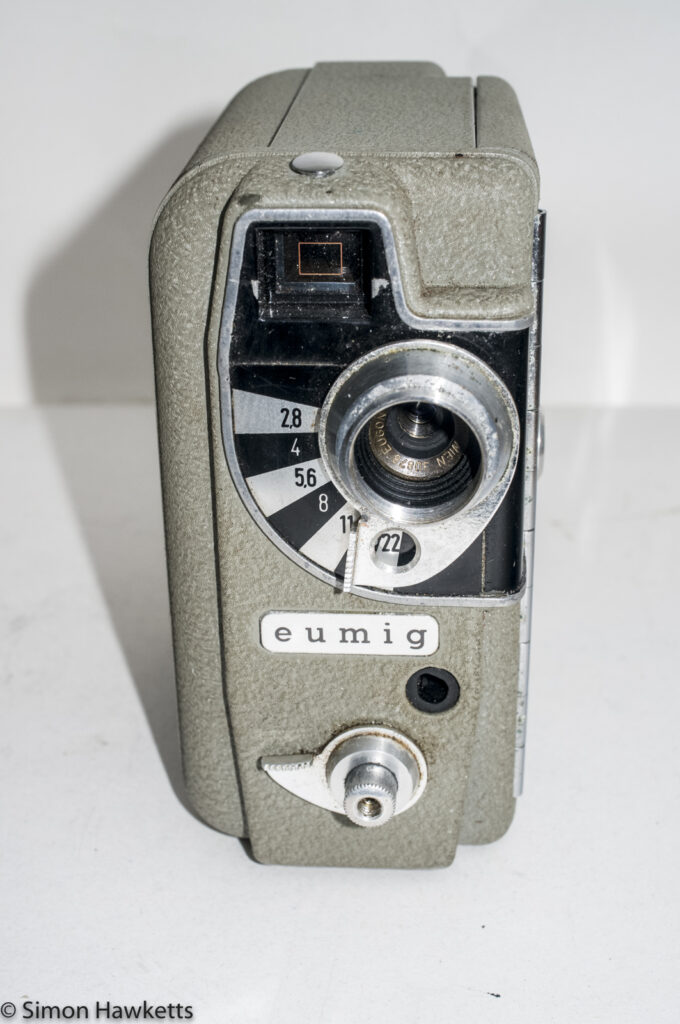
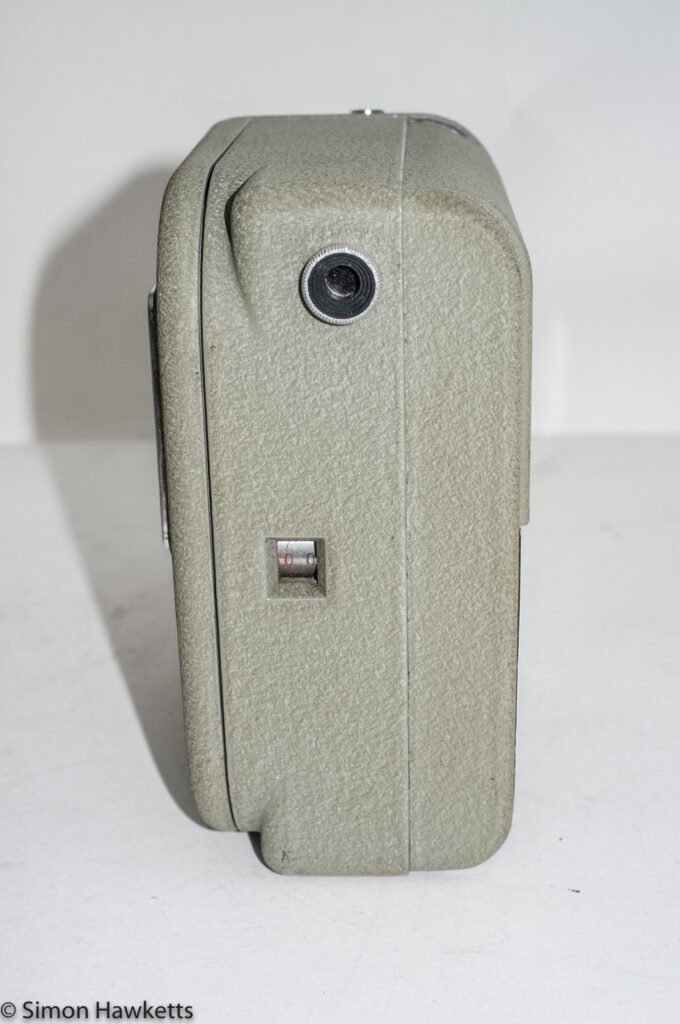
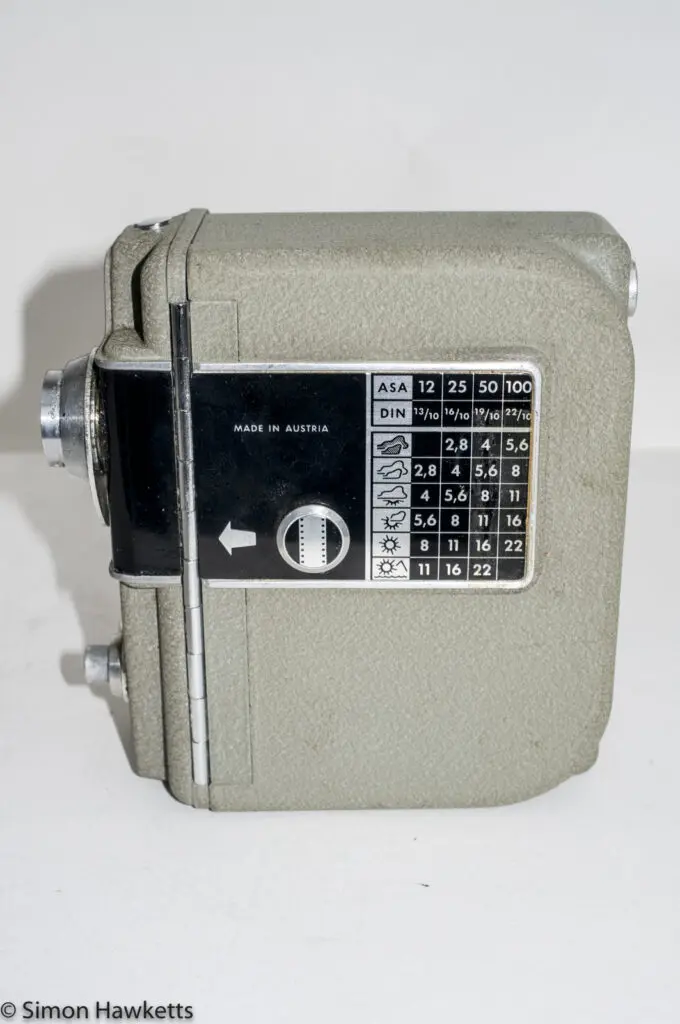
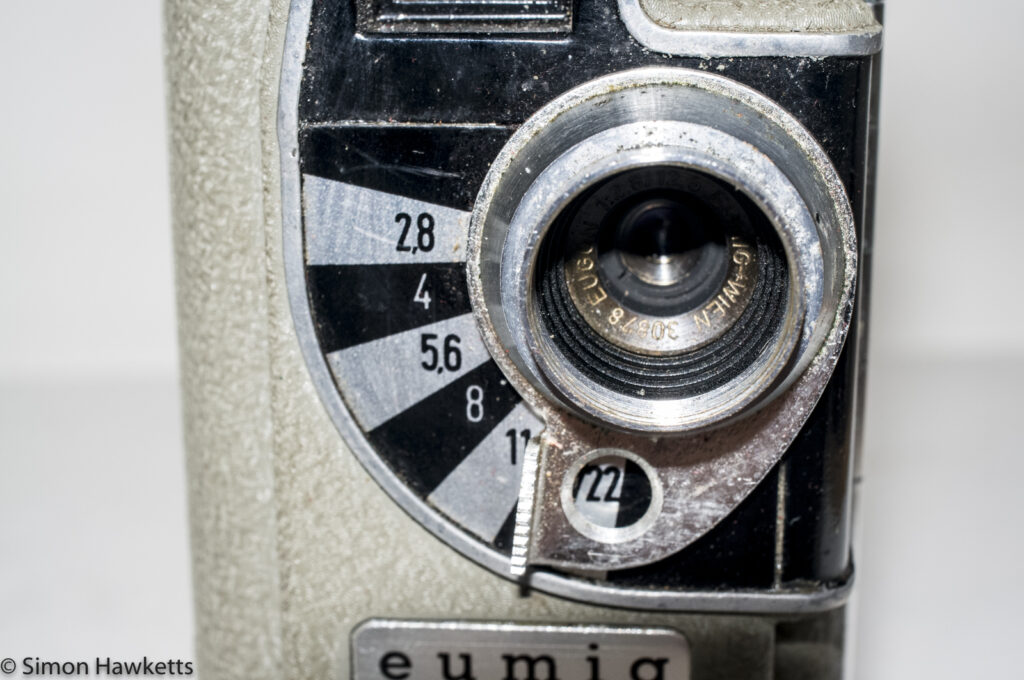
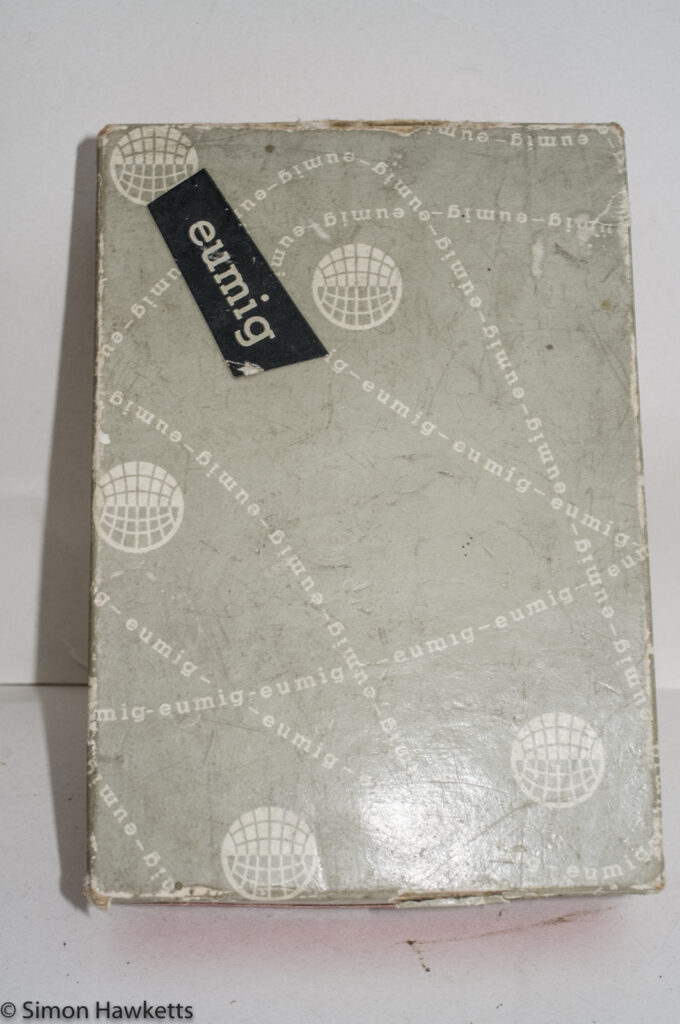
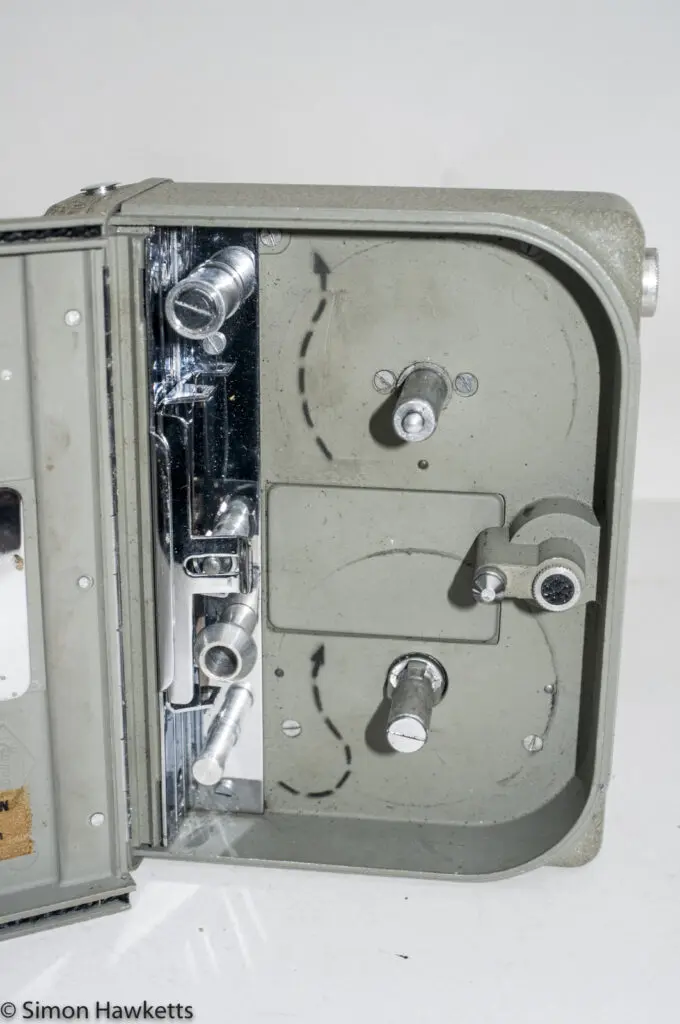
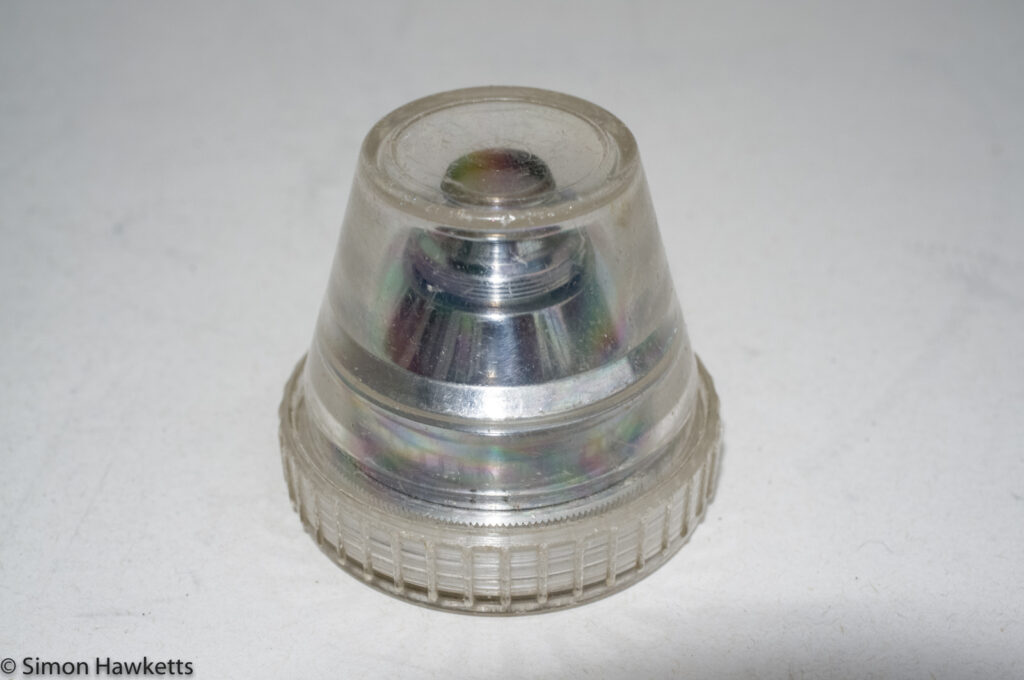
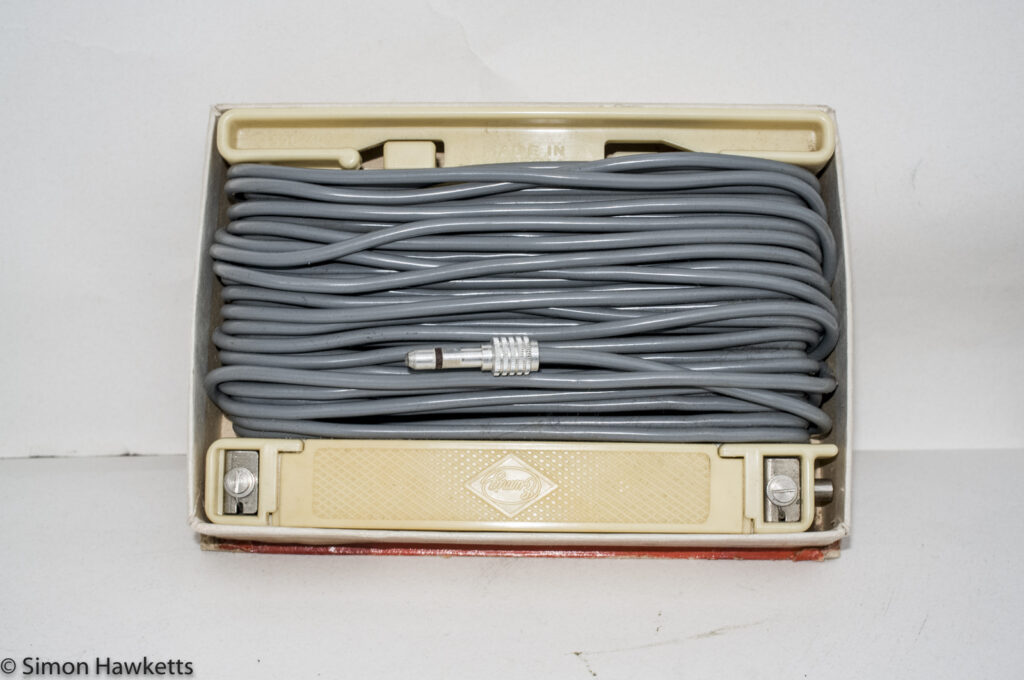
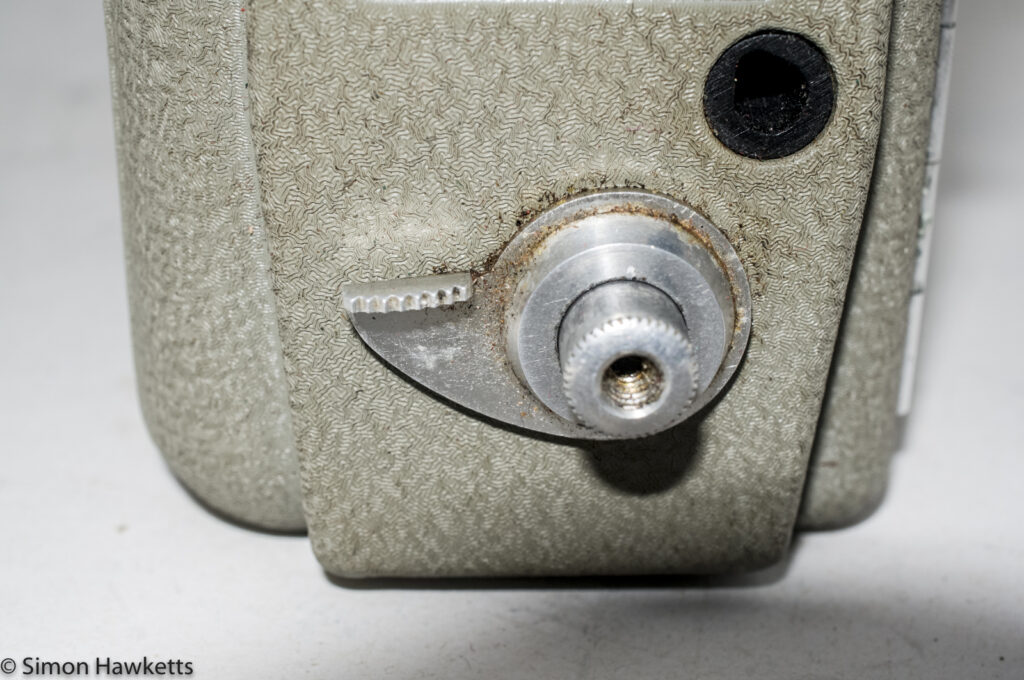
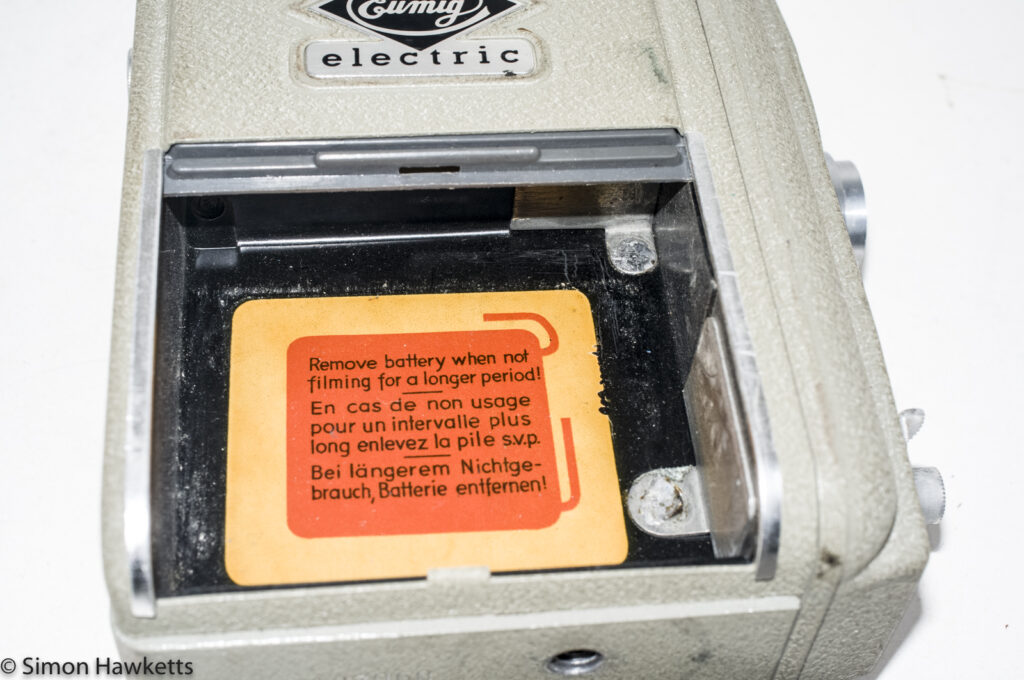
Eumig Electric 8 Cine Camera Description
The camera itself is quite simple in design, with only a few controls for the photographer to worry about. Basically, it is just a question of setting the aperture adjuster on the front lens and the camera is set and ready to go. The aperture can be set with a light meter of course, but there is also a handy exposure table fitted to the side of the camera which would have been used by most amateur cine enthusiasts.
The focus is fixed and needs no adjustment to keep everything in focus from about 3ft to infinity; at least that is the case with the camera as-is. If the telephoto lens is fitted to the camera, there is a focus adjustment built into the attachment lens which would need to be set by estimating the distance and setting it on the lens scale which has a range of 7 ft to infinity.
The shutter release fitted to the front of the camera has a switch fitted around it which allows the camera to be set to the normal (for standard 8) 16 frames per second, or to be set to take single shot, individual frames. There is also a locked position which allows the shutter to be locked in either running mode or as a lock to prevent the camera shutter being pressed while the camera is ‘in transit’.
Because the camera is electrically operated, it gives the opportunity to run it from a very long plug in battery operated cable release, which was also supplied with the camera (probably as an option). With this plugged in, it gives the photographer the ability to be ‘in the shot’ themselves, but still be in control of the shot.
The power source for the Eumig Electric 8 Cine Camera is a flat 4.5 volt battery, which was a standard size used for flashlights at the time the camera was made in the late 1950s. It is fitted in a compartment on the side of the unit, behind a roller blind cover.
This camera used standard 8 mm cine film, which was actually supplied as a 25ft reel of 16 mm film. To use this, it was loaded into the top film holder in the camera and the film is exposed. It is then removed from the bottom reel, turned over and refitted to the top position, where the film is again run through the camera. These two operations mean that the actual footage is recorded as two strips down opposite sides of the 16 mm film. When the film was sent for processing, it is split down the middle and the two pieces spliced together and supplied in a small 50-foot reel.
Although the Eumig Electric 8 Cine Camera is an interesting addition to my camera collection, it is one which I’m unlikely to ever use since I don’t have a flat 4.5 volt battery and I don’t think it is possible to still buy standard 8 film any more. It will just be an interesting display model.
Eumig Electric 8 Cine Camera Specification
- Eumig Electric 8 Cine Camera
- Made in about 1957
- Uses Standard 8 mm film (actually 16 mm film)
- 12.5 mm fixed focus, colour corrected, coated lens
- f/2.8 to f/22 aperture adjustment
- Single frame and continuous use
- Battery driven with one 4.5v flashlight cell
- Exposure table handily fixed to side of camera
- Footage indicator on back of camera
- Tripod bush on bottom of camera
- Connection for electrical cable release
- Shutter threaded for traditional cable release
- Also included wide-angle and telephoto add on lenses
- Wide angle lens Serial No:309316
- Telephoto lens Serial No: 313517
- Eumig entry on wikipedia
Discover more from Everything Vintage
Subscribe to get the latest posts sent to your email.

